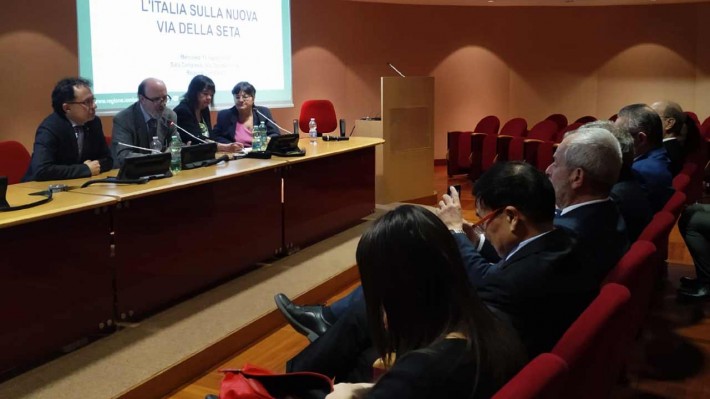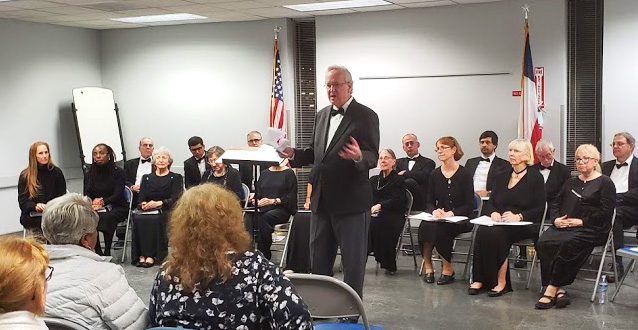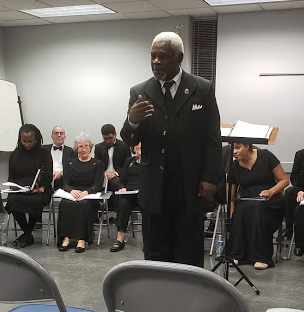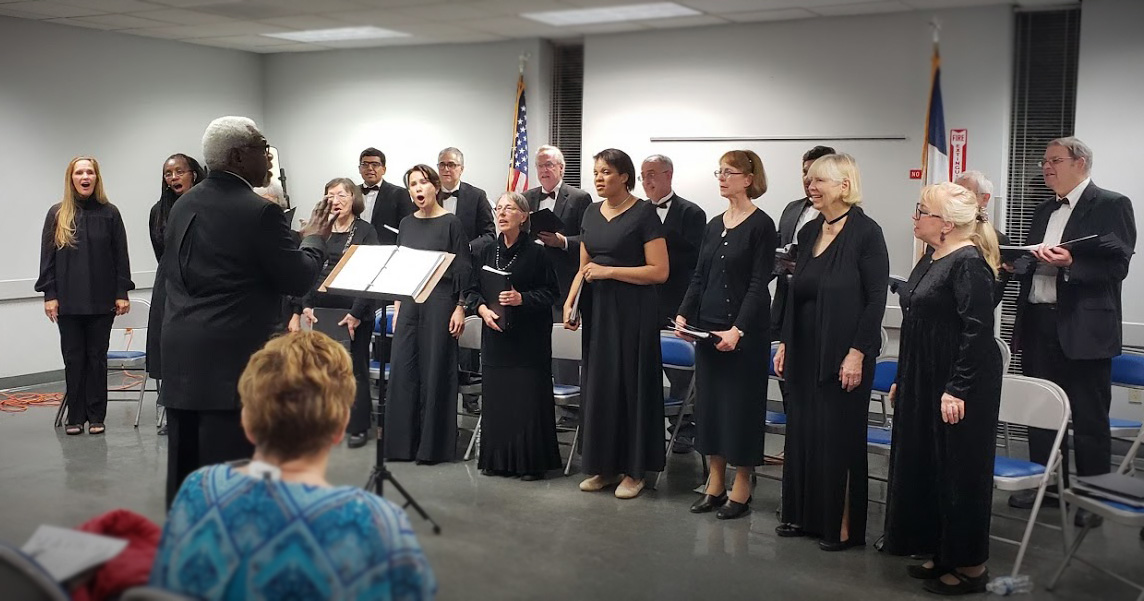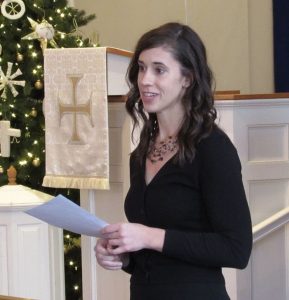The conference “Italy on the New Silk Road” organized by Movisol (LaRouche’s movement in Italy) and the Lombardy Region (state legislature) in Milan Wednesday, was a success, with Undersecretary Michele Geraci (of the Task Force China in the Italian government) opening it and emphasizing the importance of the MOU which Italy will sign with President Xi Jinping on March 22 in Rome, of the benefits for Italy of this cooperation with China, including for the development of the Italian Mezzogiorno.
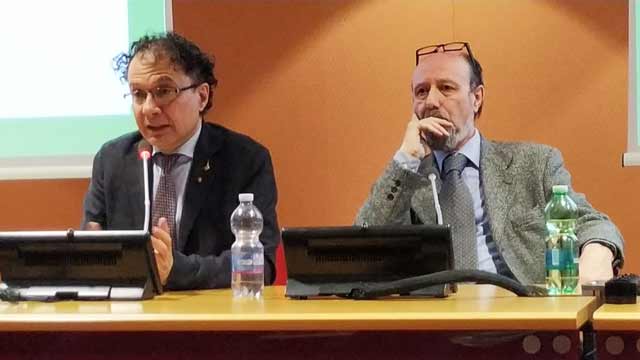
Undersecretary of the Task Force China in the Italian government, Michele Geraci and EIR’s Claudio Celani.
Geraci was followed by Helga Zepp-LaRouche, who explained the more profound meaning of this important development for the rest of the world, the realization of the New Paradigm for which Lyndon LaRouche and the Schiller Institute have been working for the last 30 years. See a full text of Helga’s remarks below.
There was a short message from Sen. Tony Iwobi, the first Nigerian parliamentarian elected for the Lega, about the historical significance on the Transaqua project, which was then described in detail by Engineer Bocchetto of Bonifica, which is working on the feasibility study with China.
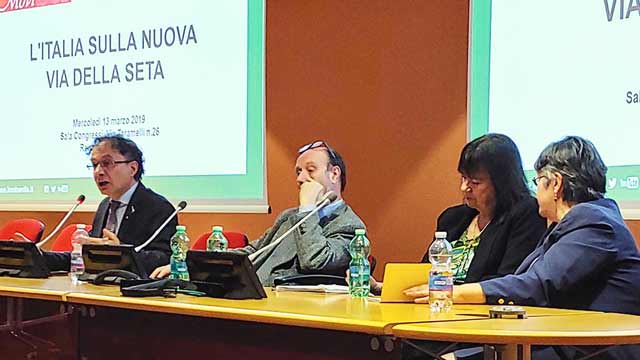
Geraci, Celani, Zepp-LaRouche and Movisol leader, Liliana Gorini.
Liliana Gorini, chairwoman of Movisol, concluded the conference by thanking the Lombardy Region, which had helped to organize it, and dedicating it to Lyndon LaRouche, who is known in Italy not only as the “visionary” of the New Silk Road, as former Economics Minister Giulio Tremonti defined him Tuesday in Corriere della Sera, but also as the main promoter of Glass-Steagall and LaRouche’s Four Laws, and reminding people how many parliamentarians who had heard him speak at the Italian Finance Committee at the Parliament in Rome in 1998, admitted years later that he was completely right.
TRANSCRIPT OF HELGA ZEPP-LAROUCHE’S REMARKS
ZEPP-LAROUCHE: It is in one sense quite amusing to see what high waves the possibility of Italy signing the MOU with China is causing right now. Because, when Xi Jinping announced the New Silk Road in 2013 and then proceeded to make treaties in the meantime, I think it’s with 112 countries, an enormous growth developed, six major industrial corridors, the Belt and Road Initiative became very quickly the largest infrastructure project in history, ever. And the strange thing was that for about four years, in the mainstream media in the United States and Europe, there was practically no reporting about this.
And then, all of a sudden, in an obviously coordinated way, the major think tanks of Europe and the United States started a series of attacks, studies, that China is causing countries to fall into a debt trap, that it’s just an effort to replace the United States as the dominant force in the world, to become Chinese imperialists, that the Belt and Road projects are not viable, that China is an authoritarian system and Xi Jinping is a dictator. So all of a sudden, you had a barrage of attacks on this concept.
The funny thing is, if you would ask and listen to the leaders of the countries cooperating with the Belt and Road, like the Africans, the Asian countries, the Latin American countries, they would be full of praise and say that with the Chinese cooperation, they have for the first time, the opportunity to overcome the underdevelopment and poverty they had suffered as a result of Western colonialism, and 70 years of IMF conditionalities, which prevented them from having exactly that kind of development. And they were full of praise, calling China a friend — so you get a completely opposite view.
I have come to the conclusion that everything in the Western mainstream media are saying about China is fake news, and just a lie. And it comes from the fact that many people in the West simply have lost the ability to imagine that any country, let alone China, could promote something which is, indeed, for the common good of all of humanity. When Xi Jinping talks about the “shared community of the common future of mankind,” or the “community of destiny,” he means it! And isn’t it obvious that in the time of thermonuclear weapons, in international space travel, of conquering all the problems of the world, that we have to think about the one humanity first, before we talk about national interests? As a matter of fact, the concept of a win-win cooperation for the Belt and Road Initiative, it has all the economic aspects which are beneficial to all the countries that have participated.
But it is much more than that: Because from the standpoint of the evolution of mankind, if you take a step back, and don’t take a look at the conflict between Marseille and Trieste, which I understand is obviously very important for the Italians, but if you look at the larger point of view, isn’t it natural that infrastructure development would eventually open up all continents and connect them?
So now, all of a sudden, you have this eruption of anti-China propaganda, but it comes from the fact that we are now at a point where something is happening, which has already happened 16 times in history, namely, that the up-to-now dominant power is being surpassed by the up-to-now second largest power. And in history this has led 12 times to war, between those two competing power, and 4 times it was just that the second power surpassed the dominant power without war. China has emphasized many times, they don’t want, obviously, to follow the 12 examples where this conflict would lead to war, but they also don’t want to simply replace the United States in the role of the leader of an unipolar world, but that they want to build a completely new system of international relations based on sovereignty, on respect for the different social system, on non-interference, and actually proposing a completely new system of international relations.
So, the big question strategically is you have the conflict between the United States and Russia, which is obvious, because of the cancellation of the ABM Treaty, then the Russian reaction to that, and now the cancellation of the INF Treaty — so there are many who think that we are actually close, in worse strategic crisis than during the height of the Cuban Missile Crisis, because of the relations between the United States and Russia. But if you talk to some strategic insiders on both sides of the Atlantic, they easily admit that the much more dangerous conflict is actually the one between the United States and China: Will the United States accept the rise of Asia, and the Belt and Road Initiative is just the obvious expression of that? Or, is what was said by the RAND Corporation a couple of months ago, that it’s better to have the war with China now, than in 10 years, because the casualties will be less?
Well, obviously, this is something we have to change, and I think that the best way to change it is, indeed, to bring in this reality of a new paradigm of thinking altogether: We have to leave geopolitics. We have to leave the idea that there can be a legitimate interest of one country, or a group of country, against another bloc of countries, because this was what led twice to world war in the 20th century. As a matter of fact, I think the potential to overcome this conflict is absolutely there. I know in Europe, many people are fainting when you mention the name of President Donald Trump, but President Trump is not seeking confrontation with Russia — as a matter of fact, he wants to have an improved relation with Russia, which he proved in the summit with Putin in Helsinki. And despite the present trade tension, President Trump always talks about President Xi Jinping as his very good friend, and China being a great country and that he wants to actually have a good relationship between the United States and China.
So the attacks on Italy, coming from the White House — the [i]Financial Times[/i] mentioned this Garrett Marquis — is not representing the same view as Trump. It comes from a faction of the neo-con which are unfortunately also in the Trump Administration, but the factional situation in the United States is very divided. You have the Democrats and the neo-cons trying to get Trump out of office with Russiagate, but on the other side, I think President Trump has proven a tremendous sustainability against the efforts to drive him out of office, and his supporters are absolutely backing him, and the chances that there will be a second Trump Administration are actually very, very high.
Now one of the accusations against China and the Belt and Road Initiative is that it would divide Europe. I think everybody knows Europe is divided already, without China: You have the North-South conflict because of the EU austerity policy, which impoverished, Greece, Italy, Spain, Portugal, gave no development to the East European countries, so they are now happy to cooperate with the Belt and Road initiative, because the EU did not provide these things. Now, the second area of division is obviously the migrant issue, where you have the division between East and West — the East European countries do not want to have any part of the proposed quota system of the EU.
Now, what Italy is actually doing in this context is really a role model, because the kind of cooperation between Italian firms and Chinese firms in the development of Africa is actually the only human way to address the refugee question.
So you have right now 13 countries which have already signed the MOU with China; you have, now with Italy, the first G7 country (which is really overrated, because the G7 is no longer that important as compared to the G20, for example). And you have many ports — Mr. Geraci said, if actually all the ports of Europe which are already wanting to be a hub between not only the New Silk Road over the land route, but also hubs to the Maritime Silk Road, Portugal and Spain becoming the hub for all the Spanish- and Portuguese-speaking countries around the world. So there is a completely changed attitude developing very quickly.
Now, also even in Germany and France, the two countries which are now trying to put the brakes on the most, apart from the EU Commission, there are many cities which are absolutely recognizing their self-interest to cooperate with the Belt and Road Initiative. You have three states in Germany — Schleswig-Holstein, Bavaria, and Brandenburg — which all the time have huge delegations back and forth; you have many cities whose mayors are complete fans of cooperation with China, and it is an increasing dynamic, which is growing more rapidly than you would think.
So, if you would ask my prognosis, I think the perspective of unifying Europe, not necessarily under the EU bureaucracy, but in the conception of de Gaulle, more like a “Europe of the Fatherlands” uniting with China, with Russia, with the Belt and Road Initiative, the Eurasian Economic Union [EAEU], and European countries, to cooperate fully in this new paradigm is absolutely there.
Well, I think that that is also the only way how Europe can impact the strategic situation: Because if you had a united Europe of the Fatherlands cooperating with the Belt and Road Initiative, including Germany and France, that would be the best way to get the United States to also give up their opposition — which I said, is not Trump himself, but these other forces — and get the United States to join the new paradigm. And I think this is the [i]only[/i] hope we have to avoid a catastrophe where we would end in World War III with nuclear weapons, meaning the extinction of civilization. So in that sense, what Italy is doing right now, is of the greatest historical importance, because Italy, with what you are doing, with the MOU but also with the joint ventures with China in Africa, can become the role model for all the other European countries.
But the New Silk Road is not just an economic concept. Obviously, infrastructure, investment, all of this is extremely important, as the backbone, but it has a much more, and not so well-known cultural/moral dimension, which I think is best expressed in the fact that the Chinese thinking is actually based on the Confucian theory, namely, that you absolutely must have harmony among all the nations, developing all in a harmonious way. And when some think tanks say that there is now a competition of systems between the Western liberal model and the state-guided model of the Chinese state economy, well, what they really mean is, China has developed its whole policy based on a Confucian orientation, which means that the state is also in charge of the moral improvement of its population through the aesthetical education. As a matter of fact, Xi Jinping has said repeatedly, that he puts the highest emphasis on the aesthetical education, because the result of this is the “beauty of the mind” and the “beauty of the soul.”
So the problem is, the reason why some people in the West regard that as a competition, is because Western neo-liberal and liberal philosophy has moved away from that conception: We are no longer humanists. We are no longer thinking as during the Italian Renaissance or the German Classical period, but we have replaced that with a liberal thinking of “everything is allowed,” every degenerate form of culture is allowed, everything goes — I don’t want to elaborate that, but if you look at the violence, the pornography in the entertainment, we don’t have to worry. We will lose that competition of the systems, simply because we are not taking care of our future generations, but allowing them to completely morally decay.
And that is why I think that we have to understand that the only way how Europe can persist in the coming future is not through military power — what Mr. Macron is proposing is ridiculous — but we will preserve our European culture [i]only[/i] if we return to the greatest tradition of our own history, meaning reviving the spirit and the ideas and principles of the Italian Renaissance, of the Ecole Polytechnique of France, of the German Classical music, literature, and poetry. Only if we rise again to our best traditions can we persist in the coming world.
So I think that the cultural dimension of the New Silk Road is as important, if not more important, than the question of economics.
I would be happy to take any questions. Thank you.








